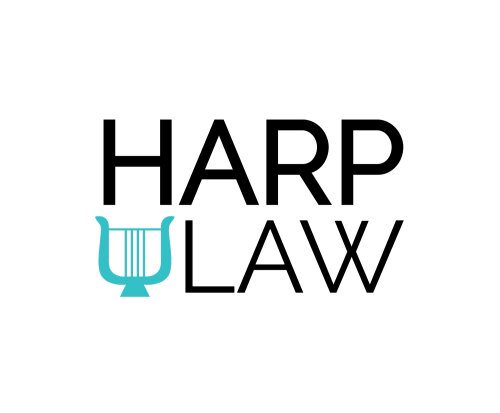Best Housing, Construction & Development Lawyers in Detroit
Share your needs with us, get contacted by law firms.
Free. Takes 2 min.
Free Guide to Hiring a Real Estate Lawyer
List of the best lawyers in Detroit, United States
About Housing, Construction & Development Law in Detroit, United States
Housing, Construction & Development Law in Detroit, United States encompasses legal regulations and processes related to residential housing, real estate development, and construction activities within the city. These laws are designed to ensure the safety, livability, and sustainability of the built environment in Detroit.
Why You May Need a Lawyer
Understanding and navigating the complexities of Housing, Construction & Development Law can be challenging. You may require legal assistance in the following common situations:
- Disputes with contractors or builders
- Zoning and land use issues
- Issues with permits and licenses
- Tenant-landlord disputes
- Property damage claims
Local Laws Overview
Detroit has specific local laws and regulations that impact Housing, Construction & Development. Key aspects include:
- Zoning ordinances and land use regulations
- Building codes and safety standards
- Rental property regulations
- Historic preservation regulations
- Environmental regulations
Frequently Asked Questions
Q: Can I sue a contractor for poor workmanship?
A: Yes, if a contractor's work is substandard or does not meet agreed-upon standards, you may have grounds for a lawsuit to seek compensation or remediation.
Q: What permits do I need for construction or renovation projects in Detroit?
A: The permits required vary depending on the scope and nature of the project. It is advisable to consult with local authorities or a lawyer to determine the specific permits needed for your construction or renovation plans.
Q: How can I resolve a dispute with my tenant or landlord?
A: Disputes between tenants and landlords can often be resolved through negotiation or mediation. If that fails, you may need to pursue legal action, such as filing a lawsuit, to seek a resolution.
Q: Are there any tax incentives for real estate development in Detroit?
A: Yes, there are various tax incentives and abatement programs available for real estate development in certain areas of Detroit. It is advisable to consult with a lawyer or the local government to explore these opportunities.
Q: What are the consequences of violating building codes in Detroit?
A: Violations of building codes can result in fines, stop-work orders, and potential legal liabilities. It is important to ensure compliance with all relevant building codes to avoid legal consequences.
Additional Resources
Here are some resources, governmental bodies, and organizations related to Housing, Construction & Development that can provide valuable assistance:
- Detroit Housing, Planning, and Development Department: Website Link
- Detroit Building Safety Engineering and Environmental Department: Website Link
- Legal Aid and Defender Association of Detroit: Website Link
Next Steps
If you need legal assistance in Housing, Construction & Development in Detroit, consider taking the following steps:
- Identify your specific legal issue or concern.
- Research and gather relevant information and documentation regarding your situation.
- Consult with a qualified attorney specializing in Housing, Construction & Development Law.
- Discuss your case in detail with the attorney and explore possible courses of action.
- Follow the attorney's advice and guidance to pursue a resolution.
Lawzana helps you find the best lawyers and law firms in Detroit through a curated and pre-screened list of qualified legal professionals. Our platform offers rankings and detailed profiles of attorneys and law firms, allowing you to compare based on practice areas, including Housing, Construction & Development, experience, and client feedback.
Each profile includes a description of the firm's areas of practice, client reviews, team members and partners, year of establishment, spoken languages, office locations, contact information, social media presence, and any published articles or resources. Most firms on our platform speak English and are experienced in both local and international legal matters.
Get a quote from top-rated law firms in Detroit, United States — quickly, securely, and without unnecessary hassle.
Disclaimer:
The information provided on this page is for general informational purposes only and does not constitute legal advice. While we strive to ensure the accuracy and relevance of the content, legal information may change over time, and interpretations of the law can vary. You should always consult with a qualified legal professional for advice specific to your situation.
We disclaim all liability for actions taken or not taken based on the content of this page. If you believe any information is incorrect or outdated, please contact us, and we will review and update it where appropriate.










